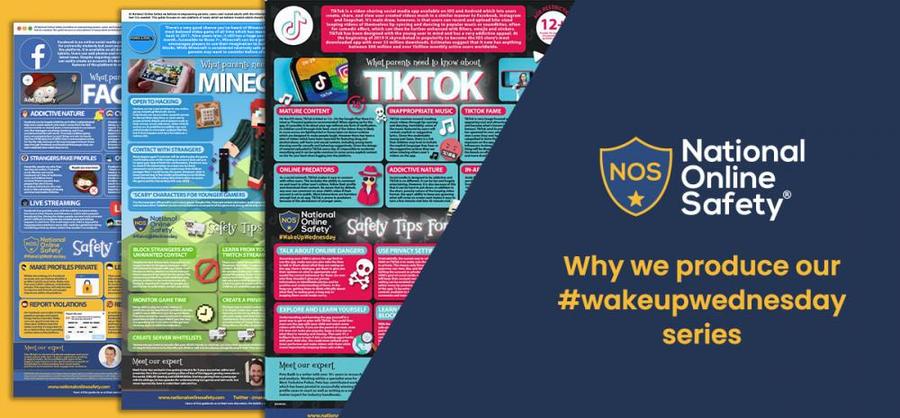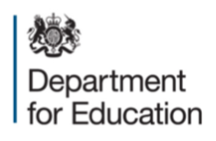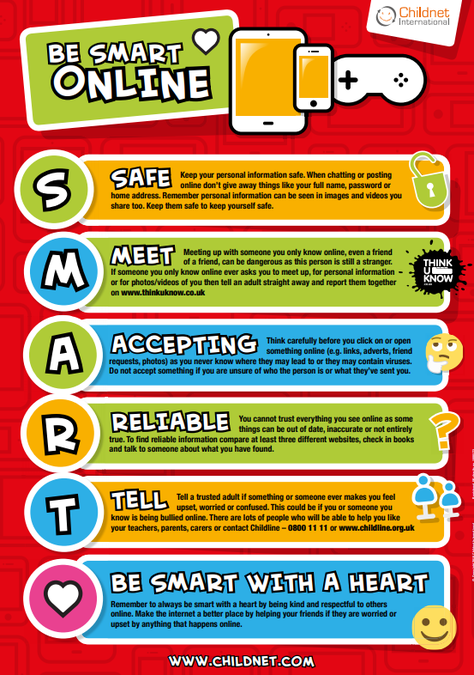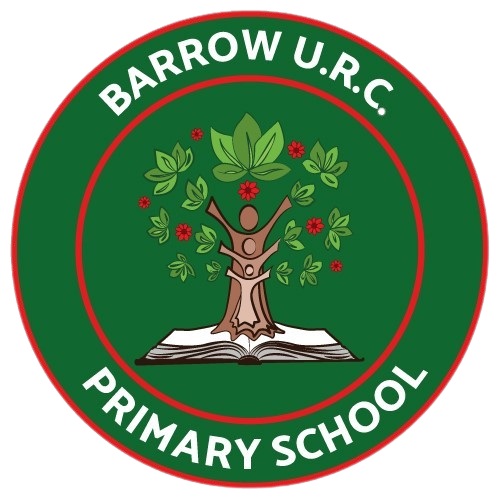Online Safety
Welcome to the Parents online safety section of our website. Here you can find information about how to keep your child safe online, including the safe and responsible use of social media.
Keeping children safe in this digital world is at the fore of our thinking at Barrow U.R.C. Primary School, especially as many children are online more than ever and most have made the transition onto home-based, blended learning this year. Every child who has access to the Internet could see inappropriate websites and images; be the victim of cyber bullying, or receive spam emails, so it is really important that they know how to use technology and the Internet safely.
You can view our Online Safety Policy on the Policies page.
Or view our child-friendly policy below.
Helpful Guides for Parents
At times, it can feel that technology is moving an accelerated pace and it is difficult as a parent to keep up with the latest apps, web pages, games consoles and online crazes. With this in mind, The National Online Safety campaign provides online safety guides each week to schools, parents, children, carers and trusted adults across the United Kingdom. These are known as; #WakeUpWednesday

The guides are produced after they identified there was a lack of high-quality education resources to support schools in upskilling trusted adults and children in online safety; especially in the identification of dangers in relation to specific apps and games. The Online Safety campaign also noticed there was (and still is) a huge gap in knowledge between children and their trusted adults in relation to the online world.
Therefore, we have listed several links which we feel would benefit parents. Please feel free to browse these sites, add them to your favourites and talk to your children about them.
What is Cyberbullying?
Cyberbullying is bullying that takes place over digital devices like cell phones, computers, and tablets. Cyberbullying can occur through SMS, Text, and apps, or online in social media, forums, or gaming where people can view, participate in, or share content. Cyberbullying includes sending, posting, or sharing negative, harmful, false, or mean content about someone else. It can include sharing personal or private information about someone else causing embarrassment or humiliation. Some cyberbullying crosses the line into unlawful or criminal behaviour.
The most common places where cyberbullying occurs are:
- Social Media, such as Facebook, Instagram, Snapchat, and Tik Tok
- Text messaging and messaging apps on mobile or tablet devices
- Instant messaging, direct messaging, and online chatting over the internet
- Online forums, chat rooms, and message boards
- Online gaming communities
The Department of Education has published advice for parents on cyberbullying. Click on the link below to access the guidance.

How can I help my child be SMART online?
At school we use the SMART principles to keep our children safe online: Safe, Meet, Accepting, Reliable and Tell.

To learn more about the SMART rules, you can visit the Childnet website and look at the SIX video lessons that explain each rule - just click on the Childnet International link below.
Further Resources for Parents
For further resources please use the links below where you will find a range of interactive activities based around e-safety.
- Think U Know - containing internet safety advice for those aged from 5 to 16, along with parents and teachers, this site is produced by CEOP (the Child Exploitation and Online Protection Centre).
- Vodafone Parents - Vodafone have lots of fantastic practical advice for parents. You can also read their 'Digital Parenting' magazine.
- Internet Safety Zone - Look in the 'Under 13s' section for useful safety advice and information.
- Kidsmart - An award-winning internet safety programme for children.
- Know IT All - lots of useful advice for keeping yourselves and your children safe on the Internet.
- Bullying UK - Information and advice about bullying for children, parents and schools.
- Kidscape - An organisation which helps to prevent bullying and child abuse.
- Childline - ChildLine is the free helpline for children and young people in the UK.
- Safe Internet - Keeping Young Children Safe Online (UK Safer Internet Centre) - A useful eSafety Guide for parents
- BBC Webwise - BBC Webwise is part of the BBC website with help & support for all aspects of internet safety.
- Avoid Ratting - Avoid Ratting - Remote Access Trojans
- Digizen - This provides information for educators, parents, carers and young people. It will help strengthen your awareness.
- Google - A guide from Google to show parents how they can protect your family online
- YouTube Safety Centre - A guide from YouTube about safety guides.
- CyberSmile - The Cybersmile Foundation website (The Cyberbullying charity)
- Parental Controls - How to set up the parental controls offered by your internet provider (UK Safer Internet Centre)
- Childnet - The site contains information about positive ways young people are using different technologies
- Webcam Safety - This is about webcam safety online from the BBC Webwise website
- Knowthenet - This is a knowledge centre website about online safety.
- CyberBullying - Advice for parents and carers on cyberbullying
- Instagram - A parents guide to instagram
- CBBC website

